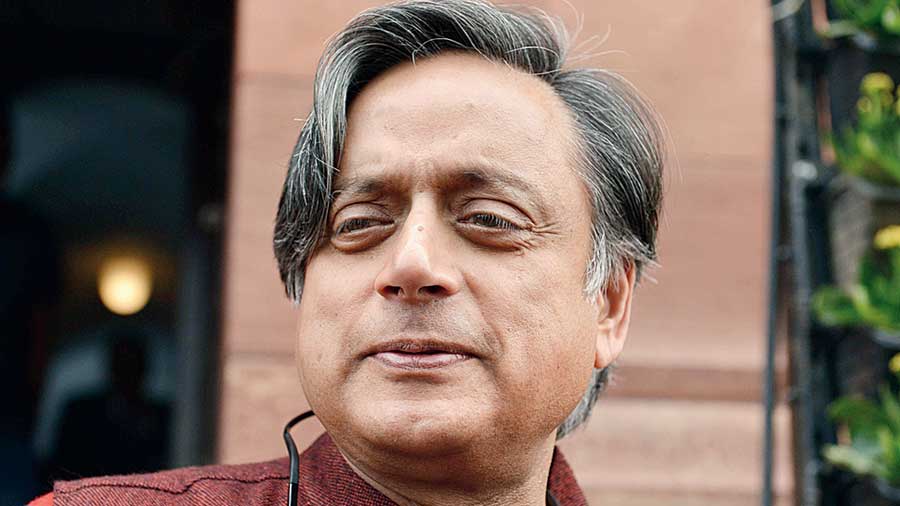
Shashi Tharoor alerts South against seat recast possibility
Don't Miss
A delimitation is expected to reduce the proportion of seats from Kerala, Tamil Nadu or Punjab where the Modi govt feels unsure of winning the 2024 general polls
M.R. Venkatesh | TT | Chennai | 02.08.21: The Narendra Modi government might advance the delimitation of Lok Sabha constituencies from the constitutionally mandated timetable of 2026 if it feels unsure of winning the 2024 general election, Congress MP Shashi Tharoor has warned.
The “reapportionment of seats” in Parliament “is a very serious threat” because “as a percentage of Parliament (total seats) we will no longer form an effective bloc from the southern states”, the former Union minister said.
A delimitation is expected to reduce the proportion of seats from states like Kerala, Tamil Nadu or Punjab, which have done well on population control and where the BJP has less influence, compared with states like Uttar Pradesh, Bihar and Rajasthan.
Tharoor was speaking at a webinar on “Modi’s India” hosted by the Dravidian Professionals Forum on Thursday evening. Among the participants were French political science and sociology scholar Christophe Jeffrelot and Tamil Nadu finance minister P.T.R. Palanivel Thiagarajan.
The 84th amendment to the Constitution in 2001 mandated a freeze on the total seats in the Lok Sabha and the state Assemblies till 2026, when a delimitation was to be taken up on the basis of the 2021 population census.
Tharoor suggested that the BJP “may move even sooner” to conduct a delimitation, bringing in a constitutional amendment through its majority in Parliament.
He went on to question the BJP’s ideology, drawing a distinction between Hinduism and “Hindutva” and accusing the party of practising a “malignant form of nationalism” that involves the use of religious identity as a “litmus test of who is an Indian”.
“I am also concerned about the imposition of Hindi-Hindutva on the southern states,” he said, echoing the concerns of the Dravidian Professionals Forum.
Tharoor said people had in the 2014 Lok Sabha polls voted for “Modi’s messaging” on issues of development and corruption, but the Prime Minister didn’t deliver on his promises.
He said the BJP had taken its increased majority in 2019 “as a licence for majoritarian nationalism”, as witnessed in the measures taken on Jammu and Kashmir and the criminalisation of the instant triple talaq. “The majoritarian agenda is now being openly advocated.”
Jeffrelot, in his opening remarks and interactions later, attributed the rise of a new kind of majoritarian, ethnic democracy under Modi to a “decline in the checks and balances” in the system.
“From 2017, we have not seen the Supreme Court resisting any decision of the Government of India,” Jeffrelot, director of research at CERI-Sciences Po/CNRS in Paris and professor of Indian politics at King’s College, London, said.
Parliament has been “sidelined”, the mainstream media has come under intense pressure, and the Pegasus spyware controversy has revealed a new dimension of “blackmail”, he said. These and the “privatisation of violence by vigilante groups” have all contributed to the “decline of democracy” in India.
Jeffrelot said the “groundwork” of 100 years by the RSS, which advanced its agenda through every segment of society via its outfits like the Seva Bharati and the Vidya Bharati, should not be forgotten. “This was underestimated in the 2014 polls.”
It’s the “federal structure of power in India” that has so far held all the states together, he argued.
“But today, we are seeing an attack on federalism unprecedented in India since Indira Gandhi’s days. Decisions are being taken (by the central government) without consulting the chief ministers,” Jeffrelot said.
“How could you do something like the demonetisation without consulting the states? If you undermine federalism, you repeat the mistakes of the past, re-ignite centrifugal forces. It is counter-productive.”
Jeffrelot’s just published book, Modi's India: Hindu Nationalism and the Rise of Ethnic Democracy, attempts to show how “Modi’s government has moved India towards a new form of democracy, an ethnic democracy, that equates the majoritarian community with the nation and relegates Muslims and Christians to second-class citizens who are harassed by vigilante groups”.
State finance minister Thiagarajan wondered why the RSS had suddenly become so politically ambitious to control a vast, diverse country.
He reckoned that the “RSS has made the deal with the devil, but I don’t think they signed up for this kind of incompetence in administration and economic mismanagement (by the Modi government)”.
Thiagarajan argued that the efforts to move towards a “unitary state” and the “cultist model” (around Modi’s personality) were unsustainable and would reach a “tipping point”.
He underlined that the BJP’s attempts to influence voters through social media had come a cropper during the recent Assembly elections in Kerala, Tamil Nadu and Bengal.
In Tamil Nadu, he said, the Hindutva messaging had some influence only among segments “of the upper caste and upper economic strata”. The ordinary people who go out for work daily “are less likely to be influenced by their propaganda”, he said.
Thiagarajan said the “charisma of the Prime Minister can be overstated”, asserting that his six-week tour of Tamil Nadu ahead of the 2019 Lok Sabha polls had revealed that the “number one anti-Modi vote was from rural women, followed by urban women”.


0 Response to "Shashi Tharoor alerts South against seat recast possibility"
Post a Comment
Disclaimer Note:
The views expressed in the articles published here are solely those of the author and do not necessarily reflect the official policy, position, or perspective of Kalimpong News or KalimNews. Kalimpong News and KalimNews disclaim all liability for the published or posted articles, news, and information and assume no responsibility for the accuracy or validity of the content.
Kalimpong News is a non-profit online news platform managed by KalimNews and operated under the Kalimpong Press Club.
Comment Policy:
We encourage respectful and constructive discussions. Please ensure decency while commenting and register with your email ID to participate.
Note: only a member of this blog may post a comment.